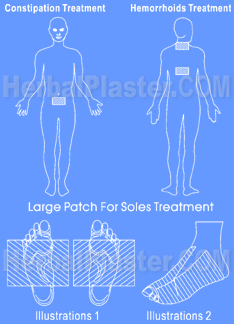|
What Causes
|
|
|
Constipation - Constipation describes bowel movements that involve excessive straining, difficulty, or discomfort; or that occur less than twice
a week. Although occasional constipation is common, chronic or persistent constipation and associated straining at bowel movements can
lead to more serious problems. Complications of chronic constipation may include hemorrhoids, anal fissures, and damage to the muscles
and supportive tissues of the anus and perineum. The most common cause of constipation is a diet lacking fluid and fiber, in combination with
poor bowel habits, such as routinely delaying defecation. Other causes of constipation may include:
- Medications (antidepressants, narcotics, antacids, iron supplements, and others)
- Pregnancy
- Prolonged inactivity or bed rest
- Acute illnesses, and
- Chronic conditions such as diabetes, hypothyroidism, and neurological or connective tissue diseases.
|
|
|
|
Hemorrhoids - Hemorrhoids, or enlarged hemorrhoidal veins, may be internal or external. Internal hemorrhoids are located in the rectum. They
may not cause pain initially. Symptoms may include bright red blood coating stools in the toilet, or on the toilet tissue after wiping.
If a clot forms in the vein, or if it becomes infected or injured, pain may be severe. Over time, internal hemorrhoids may become large enough to
protrude through the anus, appearing as reddish, moist masses, and can result in chronic fecal leakage and soiling.
External hemorrhoids appear as very tender, sometimes itchy, bluish swellings at the anus. They frequently cause bleeding and anal spasms,
making defecation painful, and causing further constipation.
Anal fissures are small, superficial, painful cracks in the lining of the anal canal, often caused by the passage of hard, irregularly shaped
stools. They can cause spasms and painful defecation. It is difficult to get hemorrhoids cure without changing lifestyle.
|
|
|
|
|


